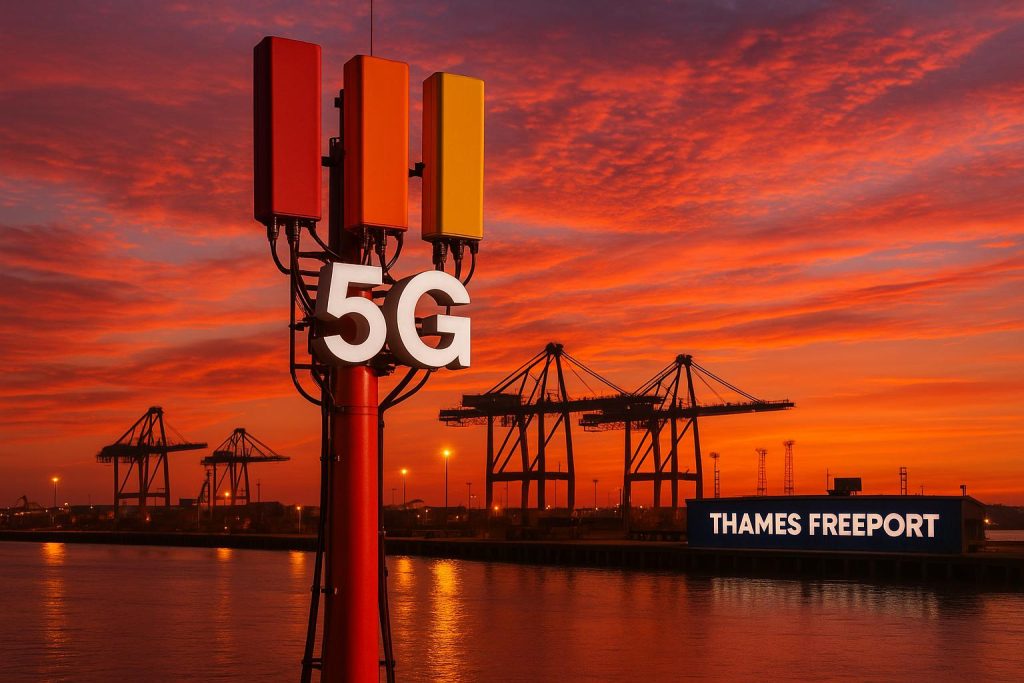Listen to the article
Verizon Business, in partnership with Nokia, advances its multi-site private 5G project at Thames Freeport, with a targeted go-live date of March 2026, setting a new standard for port and industrial digitalisation in the UK and Europe.
Verizon Business, in partnership with Nokia, has advanced its ambitious project to deploy multiple private 5G networks across Thames Freeport, a major UK maritime logistics and manufacturing hub. The initiative, announced at Mobile World Live Unwrapped Digital Industries, has transitioned from the planning to the building phase, with a target to go live by March 2026. Jennifer Artley, Verizon Business’s senior vice president, described the rollout as one of the most complex private 5G deployments, involving six private 5G cores spread across three key sites: DP World London Gateway, Fort Dagenham, and the Port of Tilbury. These locations are among the UK’s largest trade hubs, connecting to over 130 global routes.
The project is a critical part of a wider multibillion-dollar regeneration effort aimed at transforming the Thames Estuary into one of Europe’s most technologically advanced commercial and industrial centres. Each site within Thames Freeport has distinct operational needs, meaning Verizon and Nokia are custom-building the networks in real time to meet the specific demands of different tenants, ranging from port operators to manufacturing plants. This bespoke approach is vital for supporting advanced industrial applications such as AI-powered data analytics, predictive maintenance, autonomous vehicle control, and real-time logistics orchestration.
Nokia has been selected as the exclusive hardware and software provider for the private 5G networks, utilising its Digital Automation Cloud (DAC) platform and MX Industrial Edge (MXIE) technology. These platforms will enable enhanced automation, safety monitoring, and innovation R&D, aligning with the project’s broader vision of integrating edge compute, artificial intelligence, and Internet of Things (IoT) infrastructure to drive operational efficiency and innovation.
The work underway at Thames Freeport not only anticipates economic uplift but aims to deliver significant social benefits as well. Stuart Rimmer, interim CEO of Thames Freeport, highlighted ambitions to develop an AI city within the region, underlining that the project extends beyond infrastructure towards fostering partnerships that drive future prosperity. He explained that the collaboration with Verizon is about more than just network deployment; it’s about a shared vision to spearhead technological and economic transformation.
The comprehensive deployment is expected to be completed by the end of 2025, followed by testing early in 2026. The project’s success is poised to position Thames Freeport as a cutting-edge maritime and manufacturing hub at the forefront of digital transformation, setting a new standard for port and industrial digitalisation in the UK and Europe.
📌 Reference Map:
Source: Noah Wire Services



